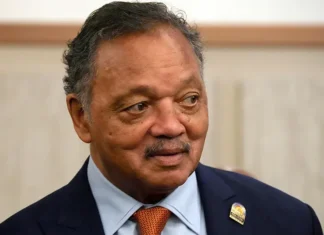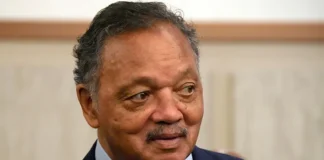by David W. Marshall
(Trice Edney Wire) – Lindsey Burke is not a household name, but many Americans will one day feel the painful depth of her work. Burke, who currently serves on the Board of Visitors for George Mason University, was previously Director of the Center for Education at The Heritage Foundation. The Heritage Foundation is the influential conservative think tank that published Project 2025. In her 17 years at the Heritage Foundation, Burke oversaw research and policy on preschool, K-12, and higher education reform.
She is the author of the education chapter in Project 2025, which outlines a conservative education policy agenda and provides recommendations to a conservative president on the Department of Education. Burke’s chapter on the Education Department proposes a major overhaul of the federal education infrastructure by moving the department’s various services to other federal agencies and using federal funds to expand school choice. Several of the authors of Project 2025 are now working inside the Trump administration, including Lindsey Burke.
Burke is now deputy chief of staff for policy and programs at the U.S. Department of Education. As a presidential candidate, Donald Trump distanced himself from Project 2025 by calling the document “absolutely ridiculous and abysmal.” Now that he is back in office, Trump and his administration have embraced some of Burke’s Project 2025 proposals by announcing that the Department of Education is moving many of its key functions to other federal agencies. Ahead of the announcement, Burke called the bid a first step or “the engagement of the marriage.” She added, “Now the work begins.” Project 2025 is real, and those who created it are now emboldened to implement it.
The pain will be felt hard by transferring the responsibility of overseeing Title I funding from the Department of Education to the Department of Labor. Title I was created in response to the Civil Rights Act of 1964, when the Elementary and Secondary Education Act of 1965 was signed into law by then-President Lyndon Johnson. By enacting Title I, Congress recognized that students in high-poverty schools have greater educational needs; therefore, supplemental financial assistance to school districts was needed to close this divide. What does this have to do with the mission of the Department of Labor? Trump was right, it is “ridiculous and abysmal.” We should not be surprised when policies that favor the wealthy and privileged are again exposed. Even though the truth is being exposed, are people paying enough attention, and will they ever care? We have a president who lied (again) to the American voters by denying his support for Project 2025. Will Republicans defend those students who are their constituents or continue to do the president’s bidding? Voters who supported Kamala Harris while sounding the Project 2025 alarm are not surprised as the current events start to unfold. The question remains, will the Project 2025 lies eventually catch up and backfire on the Trump administration?
Republicans are now starting to second-guess Trump’s plans to dismantle the agency. Some are beginning to appreciate the department more as the reality that key programs are being negatively affected sinks in. U.S. Rep. Brian Fitzpatrick, a Republican from Pennsylvania, stated he wanted to see “exactly how essential these programs are” and pledged to protect them. He added, “Altering them without transparency or congressional oversight would pose real risks to the very students they were created to protect.” Fitzpatrick concluded, “I will not allow it — and I urge all of my colleagues to stand with me.” It took only a handful of Republicans to force the release of the Epstein documents. Fitzpatrick could be the linchpin with other persuadable Republicans regarding the Department of Education. If so, they need to take a hard look at the “One Big Beautiful Act (OBBBA).” As Project 2025 moves forward, the same is true for the OBBBA.
Again, we are not surprised. We already knew that the One Big Beautiful Bill Act (OBBBA) included numerous provisions that disproportionately favor the rich and privileged, primarily by deep cuts to safety net programs while expanding benefits for the wealthiest Americans. When the Department of Education’s Reimagining and Improving Student Education (RISE) Committee reached preliminary consensus on a proposed definition of “professional degree programs” under the OBBBA, it changed the definition of what is considered a professional program, as well as placed a cap on federal student loans. The list of degrees not classified as professional includes nursing, physician assistants, physical therapists, audiologists, architects, accountants, educators, and social workers. Individuals in these fields will no longer have access to the same student loan options as before. Jennifer Mensik Kennedy, the president of the American Nurses Association, said the changes will undermine the healthcare system as a whole in a time when help is needed.
“Nurses make up the largest segment of the healthcare workforce and the backbone of our nation’s health system,” she said. “At a time when the healthcare workforce in our country faces a historic nurse shortage and rising demands, limiting nurses’ access to funding for graduate education threatens the very foundation of patient care. In many communities across the country, particularly in rural and underserved areas, advanced practice registered nurses ensure access to essential, high-quality care that would otherwise be unavailable.”
It is no surprise that professional women dominate the majority of the redefined fields.
David W. Marshall is the founder of the faith-based organization TRB: The Reconciled Body and author of the book “God Bless Our Divided America.”
















